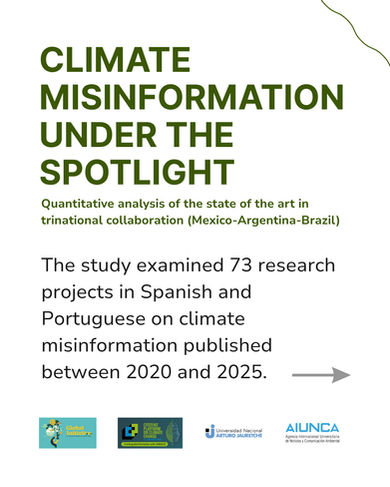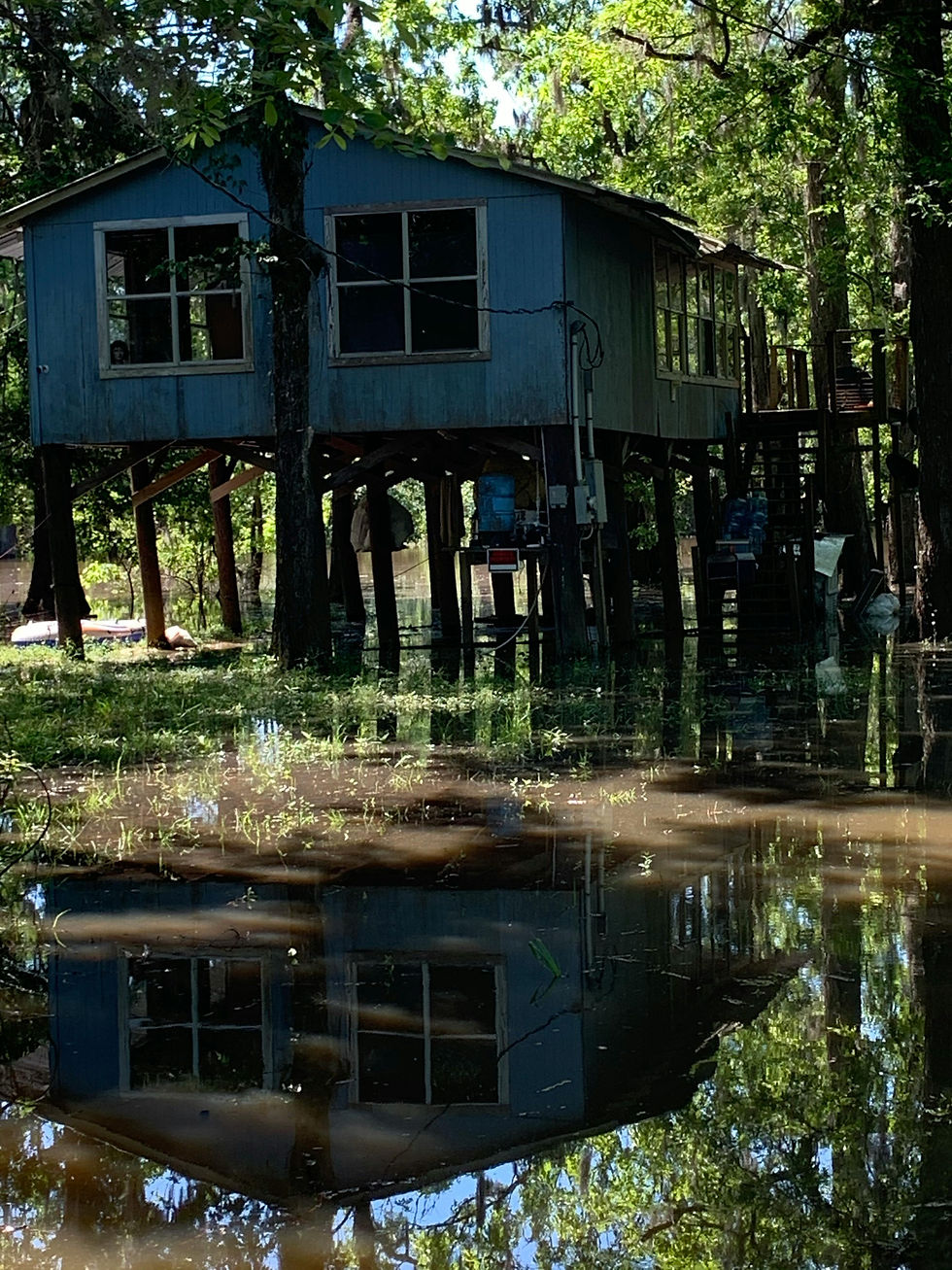Unmasking the Climate Disinformation Machine
- Nov 11, 2025
- 3 min read
Deep Dive into Research Gaps and Emerging Threats Latin America and Spain
This comprehensive analysis moves beyond a simple literature review; it is a crucial state-of-the-art assessment designed to systematically map and understand the complex communication phenomena fueling the contemporary climate and environmental crisis.
This research was produced by AIUNCA, the International University Agency for Environmental News and Communication, an initiative of the international program Citizens’ Platform on Climate Change and a Sustainable World and the Arturo Jauretche National University (Argentina). The project is funded by the Global Fund for Information Integrity on Climate Change (UNESCO).
The study rigorously examines a corpus of 73 academic, institutional, and verification research papers published between 2020 and 2025. This section presents a detailed quantitative analysis that characterizes the current landscape of knowledge, spotlighting key variables that define how, where, and by whom the study of climate disinformation is being conducted.
Key Variables Under the Microscope:
Production & Geography: The analysis pinpoints the temporal distribution of academic output, identifying peak periods of investigation often tied to major political and environmental events (like the Bolsonaro administration, the rise of Milei, and recent COPs). The research also reveals the geographical concentration of studies, noting the dominance of countries like Brazil, Spain, and Argentina, while critically exposing the underrepresentation of regions like Central America and the Andean area.
The Conceptual Shift: The research confirms a significant theoretical evolution: the field is moving away from focusing solely on "Denialism" to addressing the more insidious threat of "Climate Action Obstructionism." Empirical data supports this shift, showing that over 96% of the narratives analyzed seek not to deny the climate crisis, but to delay or derail necessary mitigation efforts (delaying narratives).
Actors and Platforms: Primary disinformation actors are categorized, ranging from fossil fuel interests and agribusiness lobbies to governmental actors and far-right political movements. Simultaneously, the study maps the digital ecosystems under investigation, revealing that YouTube is the most frequently studied platform, contrasting sharply with the critical lack of research on encrypted, closed-loop platforms like WhatsApp.
Emerging Issues: The analysis identifies critical emerging themes that shape the current disinformation landscape, including sophisticated corporate Greenwashing campaigns, the proliferation of environmentally focused Infodemia, and the integration of climate conspiracies into broader "culture wars."
The methodology underpinning this review is the established exploratory protocol of Arksey and O’Malley (2005), involving six systematic stages. The search spanned multiple specialized academic sources (SciELO, Redalyc, CLACSO) and fact-checking platforms, utilizing comprehensive keywords in Spanish and Portuguese. The final selection was independently validated by two senior researchers, ensuring only peer-reviewed, evidence-based publications were included.
This systematic approach is essential not only for identifying evolutionary patterns and trends but, crucially, for highlighting the methodological limitations and critical gaps in current research on climate change disinformation in the Spanish-speaking world, thereby setting an urgent agenda for future studies.
Integration of the Factora AI Tool
The research scope is enhanced by the integration of the Factora AI tool, a dedicated Artificial Intelligence system used to process and analyze large volumes of complex data. The tool’s capabilities support researchers in systematic data extraction and the identification of subtle patterns within the information ecosystem, thus ensuring the high integrity and precision of the findings related to disinformation dynamics.
Related Initiative: Cool the Lines Podcast
Complementing this extensive research, the podcast series Cool the Lines, produced by students of the Master’s Degree in Communication for International Relations (MICRI) at IULM University (Italy), is also available. This series translates the urgency of the climate communication challenge into an accessible format.





































Comments